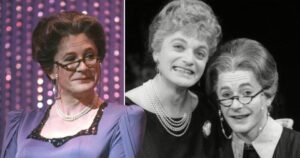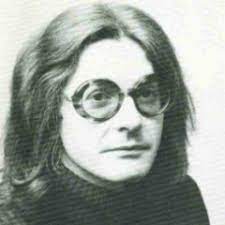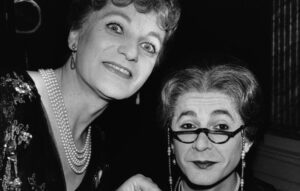George Logan was an influential American statesman, lawyer, and diplomat who lived from 1753 to 1821. He is best known for his role in negotiating the Treaty of 1812, also known as the Treaty of Ghent, which ended the War of 1812 between the United States and Britain. Here is a brief biography of George Logan:
Early Life and Education:George Logan was born on January 9, 1753, in Philadelphia, Pennsylvania. He came from a prominent Quaker family, and his father was a successful merchant. Logan received his early education from a private tutor and later attended the College of Philadelphia (now the University of Pennsylvania), where he studied law. He was admitted to the bar in 1780 and established a successful legal practice.
Political Career:Logan’s political career began in the Pennsylvania legislature, where he served from 1783 to 1789. During this time, he advocated for various reforms, including religious freedom and the abolition of slavery. He was known for his progressive views and strong support for individual liberties.
Diplomatic Mission to France:In 1798, during the tense period of the Quasi-War between the United States and France, Logan undertook a diplomatic mission to France as a private citizen. He attempted to negotiate a peaceful resolution and prevent a full-scale war between the two countries. Although his mission was unofficial, it gained him recognition and respect both in the United States and abroad.
Treaty of 1812:Logan’s most significant achievement came during the War of 1812 when he was appointed by President James Madison as one of the commissioners to negotiate a peace treaty with Britain. He, along with Albert Gallatin and James A. Bayard, represented the United States in the negotiations held in Ghent, Belgium. Despite facing numerous challenges and disagreements, the commissioners successfully negotiated the Treaty of Ghent, which ended the war and restored peace between the United States and Britain.
Later Years and Legacy:After his diplomatic success, Logan retired from public life and focused on his legal career and personal interests. He remained an active member of the Philadelphia community and continued to advocate for various social and political causes.
George Logan passed away on April 9, 1821, in Philadelphia. Although he did not hold any high-ranking government positions or achieve widespread fame during his lifetime, his diplomatic efforts during the War of 1812 played a crucial role in securing peace between the United States and Britain. His commitment to diplomacy and his progressive beliefs regarding individual liberties and social reform remain significant aspects of his legacy.
Certainly! Here are some more details about George Logan’s life and accomplishments:

Early Political Career and Anti-Federalism: George Logan began his political career in the Pennsylvania legislature, where he served from 1783 to 1789. He aligned himself with the Anti-Federalist faction, opposing the ratification of the U.S. Constitution. He believed that the Constitution gave too much power to the federal government and undermined individual liberties.
- Opposition to Jay’s Treaty: In 1794, Logan strongly opposed Jay’s Treaty, a controversial agreement negotiated by Chief Justice John Jay between the United States and Britain. He believed that the treaty favored British interests at the expense of American sovereignty and was critical of the Federalist administration of President George Washington.
- Unauthorized Diplomatic Mission to France: In 1798, during the Quasi-War with France, Logan undertook an unofficial diplomatic mission to France at the request of several Republican members of Congress. Despite lacking an official government appointment, he met with French officials, including Foreign Minister Talleyrand, in an attempt to ease tensions and prevent a full-scale war. His efforts were met with mixed success but gained him recognition for his diplomatic skills.
- Controversy and the Logan Act: Logan’s unauthorized mission to France sparked controversy, particularly among Federalists who accused him of overstepping his bounds and engaging in unauthorized diplomacy. In response, the Logan Act was passed in 1799, making it a crime for private citizens to engage in unauthorized negotiations with foreign governments. The act is still in effect today, although prosecutions under it have been extremely rare.
- Treaty of Ghent: In 1814, President James Madison appointed George Logan as one of the commissioners to negotiate a peace treaty with Britain to end the War of 1812. Alongside Albert Gallatin and James A. Bayard, Logan represented the United States in the negotiations held in Ghent, Belgium. Despite facing significant challenges and disagreements, the commissioners reached an agreement known as the Treaty of Ghent, signed on December 24, 1814. The treaty restored peace between the two nations and restored pre-war boundaries.
- Later Years and Philanthropy: After his diplomatic success, George Logan retired from public life and focused on his legal career and philanthropic activities. He contributed to various charitable organizations and supported causes such as education and the abolition of slavery. He also maintained an active interest in scientific pursuits and was a member of several scientific societies.

George Logan’s legacy lies in his diplomatic efforts during the War of 1812 and his commitment to individual liberties and social reform. Although his name may not be as widely recognized as some other Founding Fathers, his contributions to peace negotiations and his advocacy for progressive ideas continue to be appreciated in historical context.
George Logan was an influential American statesman, lawyer, and diplomat who lived from January 9, 1753, to April 9, 1821. He was born in Philadelphia, Pennsylvania, into a prominent Quaker family. His father was a successful merchant, and Logan received his early education from a private tutor. He later attended the College of Philadelphia (now the University of Pennsylvania) and studied law. In 1780, he was admitted to the bar and established a successful legal practice.
Logan’s political career began in the Pennsylvania legislature, where he served from 1783 to 1789. He aligned himself with the Anti-Federalist faction and opposed the ratification of the U.S. Constitution. He believed that the Constitution gave too much power to the federal government and undermined individual liberties. Logan was known for his progressive views and advocacy for religious freedom and the abolition of slavery.
In 1794, Logan strongly opposed Jay’s Treaty, a controversial agreement negotiated by Chief Justice John Jay between the United States and Britain. He believed that the treaty favored British interests at the expense of American sovereignty and was critical of the Federalist administration of President George Washington.

In 1798, during the Quasi-War with France, Logan undertook an unofficial diplomatic mission to France. At the request of several Republican members of Congress, he attempted to ease tensions and prevent a full-scale war. Although his mission was not officially sanctioned by the government, he met with French officials, including Foreign Minister Talleyrand. While his efforts were met with mixed success, they gained him recognition for his diplomatic skills.
Logan’s unauthorized mission to France sparked controversy, particularly among Federalists who accused him of overstepping his bounds and engaging in unauthorized diplomacy. In response, the Logan Act was passed in 1799, making it a crime for private citizens to engage in unauthorized negotiations with foreign governments. The act is still in effect today, although prosecutions under it have been extremely rare.
George Logan’s most significant achievement came during the War of 1812. In 1814, President James Madison appointed him as one of the commissioners to negotiate a peace treaty with Britain. Alongside Albert Gallatin and James A. Bayard, Logan represented the United States in the negotiations held in Ghent, Belgium. Despite facing significant challenges and disagreements, the commissioners successfully reached an agreement known as the Treaty of Ghent. The treaty, signed on December 24, 1814, restored peace between the two nations and restored pre-war boundaries.

After his diplomatic success, Logan retired from public life and focused on his legal career and philanthropic activities. He contributed to various charitable organizations and supported causes such as education and the abolition of slavery. He also maintained an active interest in scientific pursuits and was a member of several scientific societies.
George Logan passed away on April 9, 1821, in Philadelphia. While his name may not be as widely recognized as some other Founding Fathers, his contributions to peace negotiations during the War of 1812 and his advocacy for individual liberties and social reform remain significant aspects of his legacy.











